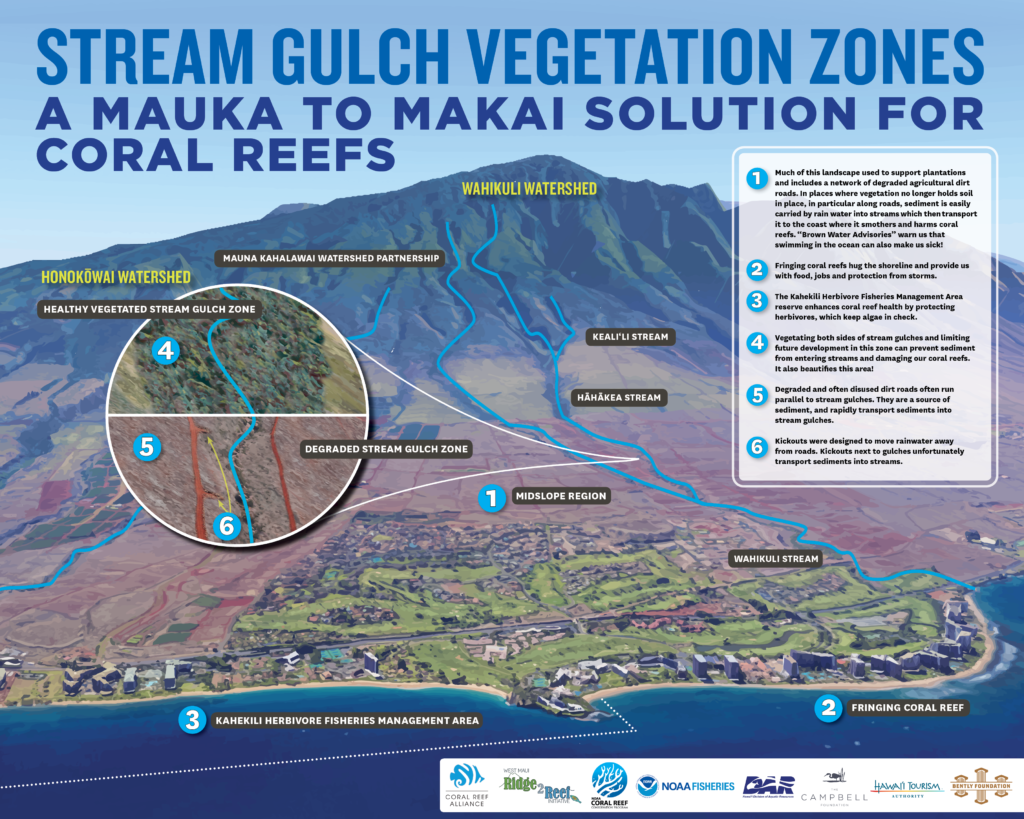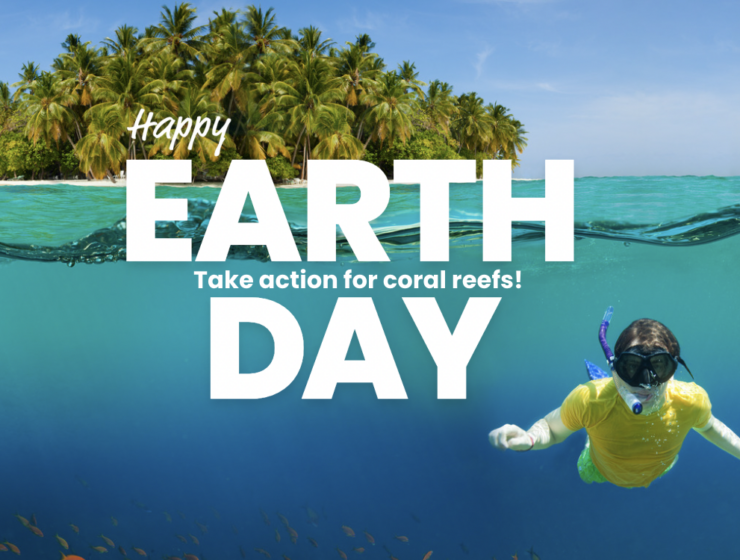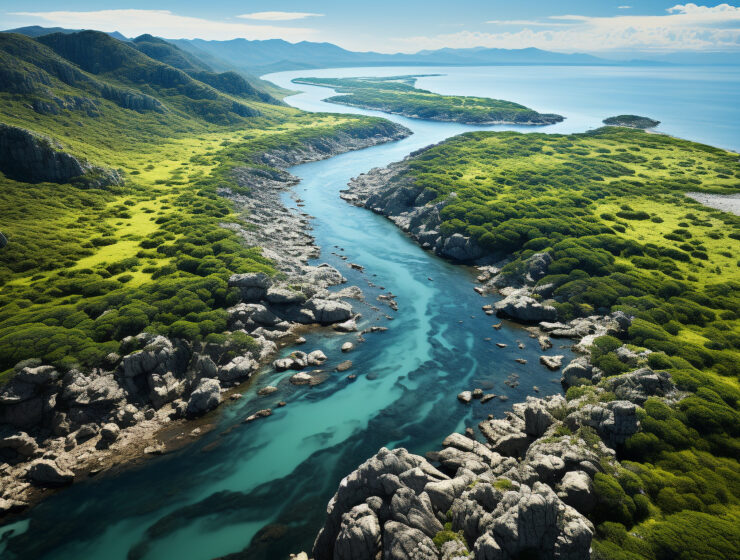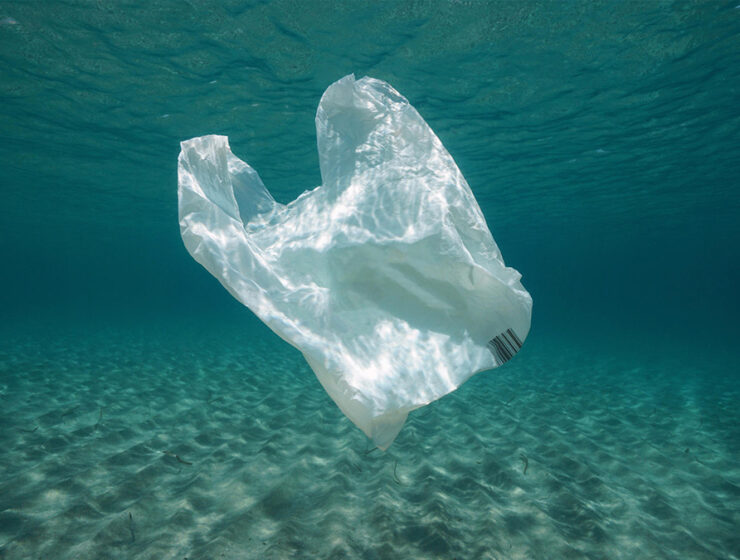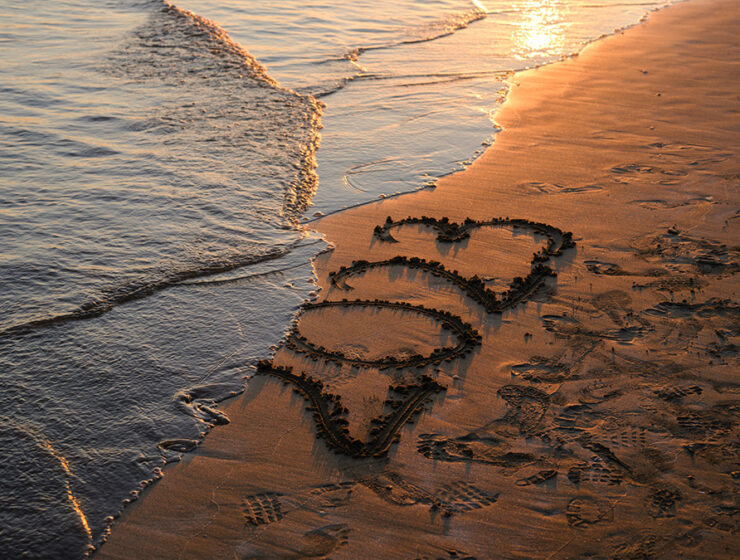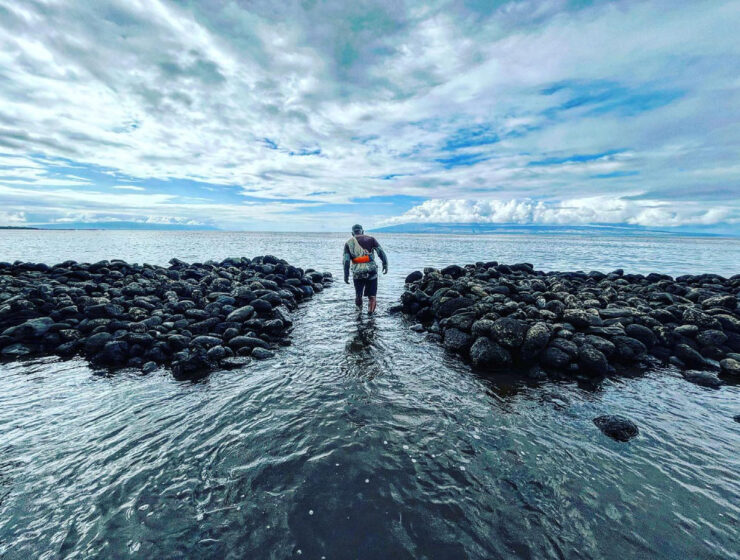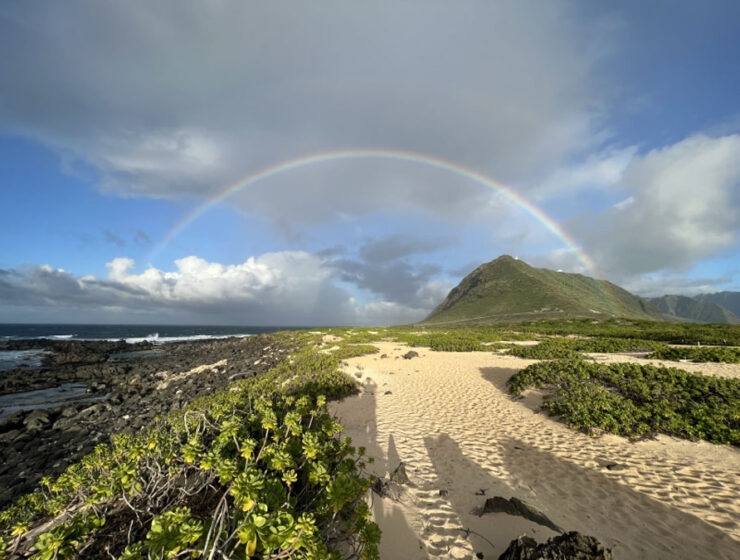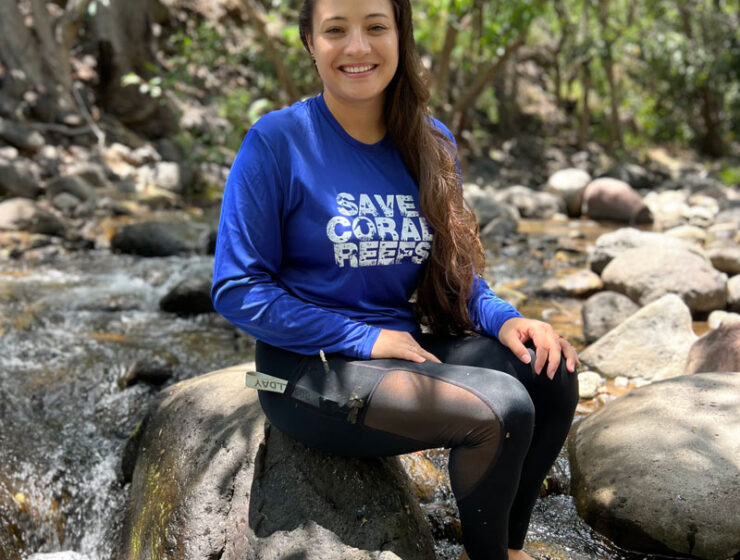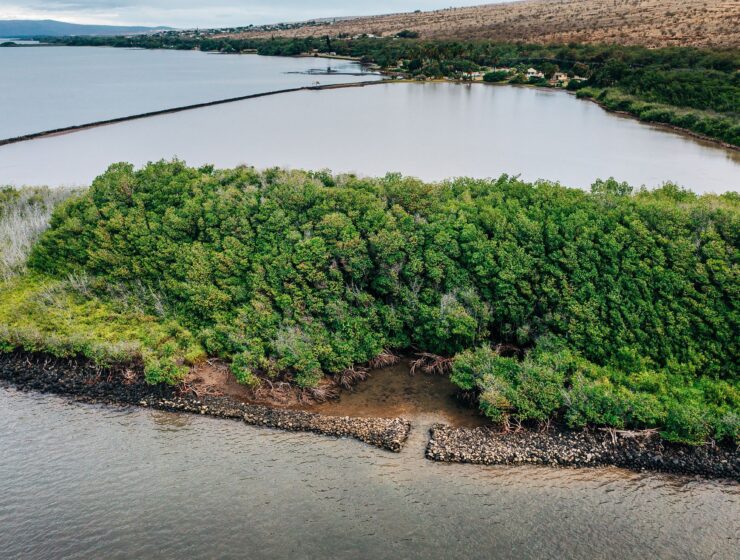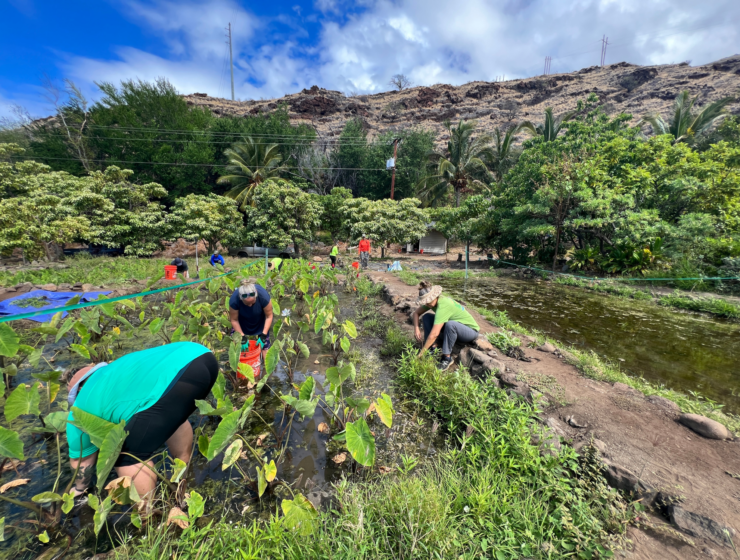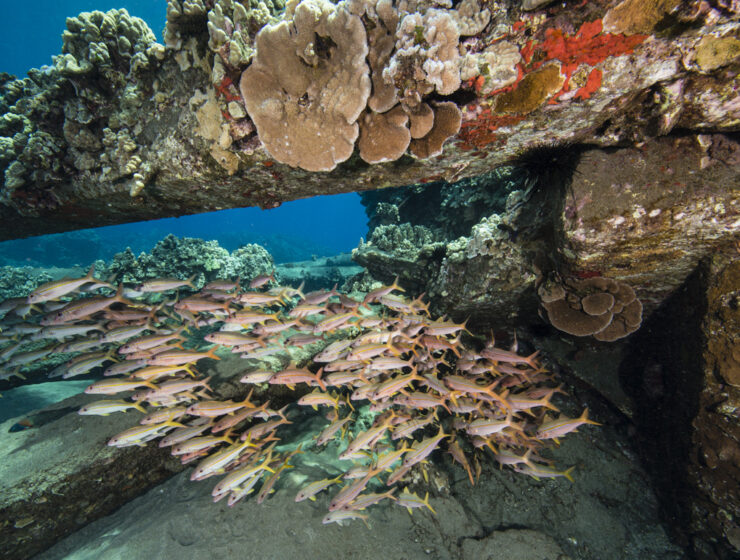
West Maui’s Coral Reefs
West Maui’s coral reefs are important sources of coral larvae that replenish reefs across Maui, Lana‘i, Moloka‘i, and Kaho‘olawe. Because of this, the area has been designated a priority conservation site by the U.S. Coral Reef Task Force and the Hawai‘i Department of Land and Natural Resources.
But West Maui is laden with historic sugarcane and pineapple plantations that are now out-of-use. During heavy rain events, the soil from these degraded landscapes travels down old dirt roads, enters stream gulches, and ultimately reaches the ocean where it smothers coral reefs.
Stormwater runoff is considered a major source of water pollution and has led to a 25-50% decline in Maui’s coral cover in the last fifteen years. It also regularly causes the Hawaiʻi Department of Health to issue “Brown Water Advisories”, which are warnings to the public to avoid swimming or fishing because of risks to human health.
Our Work
Our mauka to makai (ridge-to-reef) approach restores the natural function of an ahupua’a (watershed), so that chemicals, nutrients, and sediment are naturally removed from stormwater before they reach the ocean.
Toward the top of the mountain and in the midslope region, we use native plants—and over 100 supportive volunteers—to restore the degraded landscapes and trap the sediment before it has a chance to runoff into the ocean. We’re restoring the mauka (mountainside) with native plants like pili grass and natural materials like coconut coirs to slow the runoff, trap the sediment, and absorb the nutrients.
On the coast, we work with resort property owners, the tourism industry, and Maui County to implement reef-friendly Low Impact Design (LID) landscaping that serves as a last-ditch effort to filter stormwater before it reaches the ocean. Looking for more details?
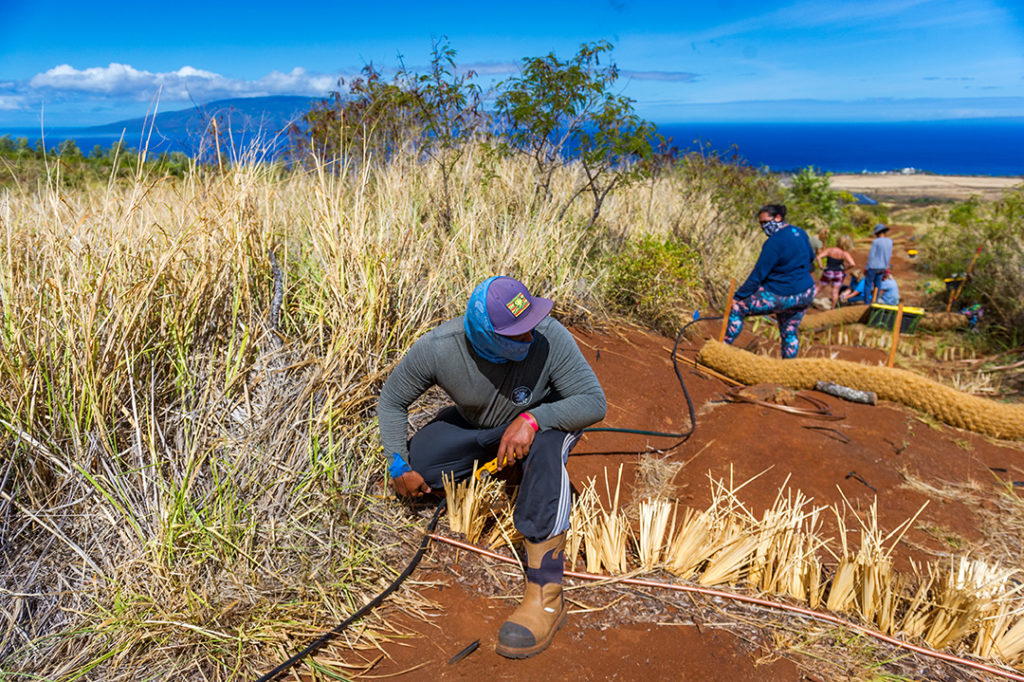
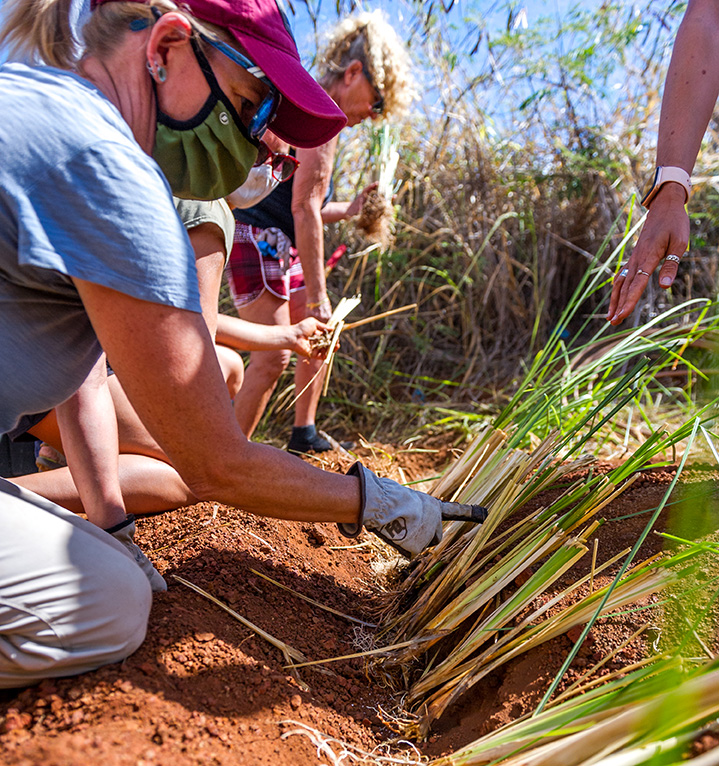
Get Involved
Volunteer
We’re always looking for local volunteers to help us grow native plants and reforest the mountainside. Volunteers grow native plants from seed at their homes. And once a month, we have a volunteer planting day where volunteers transplant native plants into the ground at our restoration site. Interested? Sign up by completing our volunteer interest form, and a member of our team will contact you shortly. Before volunteering at our field site, you will also need to complete the volunteer waiver.
Become a Citizen Scientist
Through our partner organization, Hui O Ka Wai Ola, volunteers collect water quality samples around the island to improve our understanding of Maui’s coastal areas and threats to coral reefs. Visit the Hui O Ka Wai Ola website to become a water quality sampler.
Recent News
Resources
How to Build a Rain Garden to Filter Stormwater
Building a rain garden can be an effective, low-cost tool to reduce stormwater pollution reaching our streams and the ocean. This guide outlines how to build a new rain garden, but you can also use these guidelines to improve water filtration within your current landscape by retrofitting existing flower beds or gardens.
Triple Benefits of Traditional Hawaiian Agriculture
Learn how traditional Hawaiian agricultural practices can lead to healthier oceans and waterways, provide greater food security, and support local culture and traditions.
Becoming a Successful Traditional Mahi’ai (Farmer)
Looking to become a traditional farmer in Hawai’i? Follow the steps outlined in this pipeline to hone in on your skills and get one step closer to enjoying the benefits of traditional agriculture.
Installing a Curb-out Raingarden
A rain garden is a landscaped depression in the ground that is designed to collect stormwater runoff from rooftops and other impervious surfaces. This case study documents the process of building a rain garden along a heavily trafficked road—the Kā‘anapali Parkway—used to access a popular resort in West Maui, Hawai’i.
